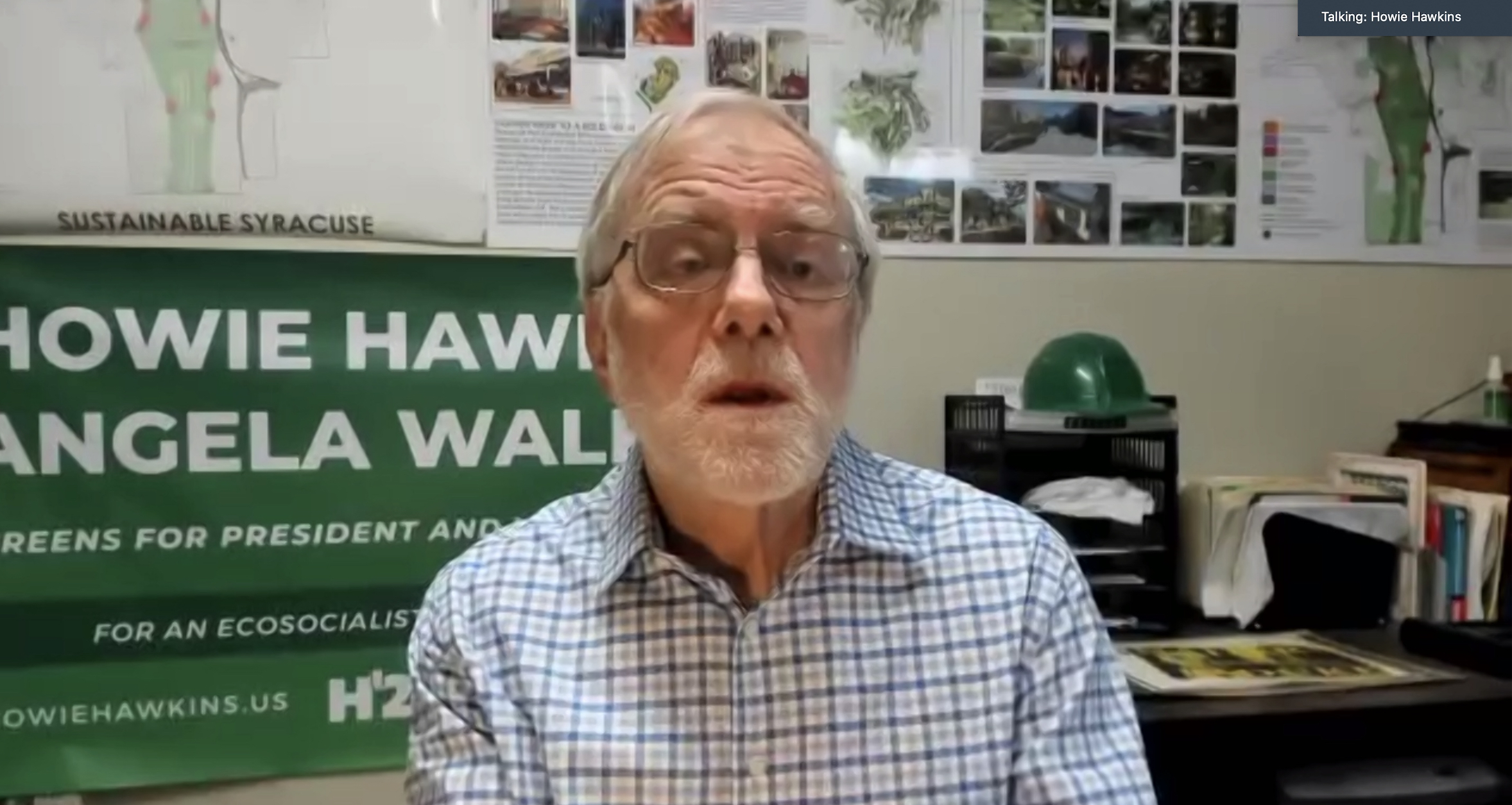Sunrise Bowdoin hosts climate justice panel
March 12, 2021
 Courtesy of Sunrise Bowdoin.
Courtesy of Sunrise Bowdoin.On Wednesday, Sunrise Bowdoin hosted “Envisioning Climate Justice: A Progressive Policy Panel.” The event featured Hannah Vogel, staffer for Massachusetts Senator Ed Markey; Arjun Krishnaswami from the National Resources Defense Council and 2020 Green Party presidential candidate Howie Hawkins. It was co-sponsored by the Office of Sustainability and the Environmental Studies Department, and it was moderated by Sunrise leaders Talia Mirel ’24 and Leif Maynard ’23.
Throughout the hour, panelists touched on topics from grassroots activism and climate justice to bills currently making their way through Congress. Mirel kicked off the panel with a question about the process of developing policies and identifying solutions to environmental problems.
Hawkins identified grassroots interest and ideas as the source of his successful advocacy to ban fracking in New York.
“You’ve really got to listen to the people you’re working with, because these policies are going to affect them,” Hawkins said. “And you’ve got to know what they’re willing to fight for.”
Vogel echoed the importance Hawkins placed on local support.
“It’s all about having an outside grassroots movement,” Vogel said. “Now there is this movement that has been fostered for generations but has really accelerated as the climate crisis has also accelerated, and having the grassroots support and energy has changed the conversation.”
Krishnaswami added that when drafting policies, he often looks for ideas from places that have already started advocating for or enacting progressive ideas.
“Where have policies that have started achieving these goals already been enacted or proposed?” Krishnaswami said. “How can we learn from what some states are doing that has worked well?”
These perspectives were inspiring to Maynard.
“It was really encouraging to hear that they were all advocating for us to pursue state advocacy work,” Maynard said in a Zoom interview with the Orient. “That’s exciting to hear that they use states as examples for national policy, [and] that passing progressive policy in states can then … shift the narrative to pass them at a federal level.”
The panelists were then asked about which policies they are prioritizing and which ones local activists should be advocating for as well.
Hawkins, whose campaign platform included a $27.5 trillion Green Economy Reconstruction Program, said that in the wake of the COVID-19 pandemic, the United States needs to invest in clean energy at a huge scale in order to stimulate the economy.
While the Biden administration recently rolled back projects such as the Keystone XL pipeline, during the panel Hawkins advocated for a “just transition.” This phrase emphasizes the need not just for fewer fossil fuel jobs, but for more clean energy jobs to replace the ones lost when fossil fuel projects are shut down.
Krishnaswami also said that after the COVID-19 crisis, the United States should invest in clean energy jobs to transition to an equitable economy.
“How can we use this moment to invest in getting the workers who have lost their jobs back to work in good jobs?” Krishnaswami said. “And that means … spending to support. With fossil fuel workers and fossil fuel communities, [we need to balance out] the revenue that those states will lose in that transition.”
A highlight for Maynard and for Sunrise leader Leila Trummel ’23 was a policy that Vogel described in response to a question about how to incorporate perspectives of marginalized communities to generate climate policies that meet their needs.
This bill, on environmental justice data mapping, provides funding for a system to collect data on factors such as environmental burdens and socioeconomic conditions using community engagement.
The goal, according to Vogel, is “trying to map out … these different cumulative burdens, actually talking to the communities to get also qualitative and cultural metrics” so the federal government can then direct funding to where it is most needed.
That emphasis on community involvement resonated with Trummel.
“I really liked … [that Vogel] touched on the point that you really have to consult with these communities,” Trummel said. “And then [Vogel] really hit the point that there needs to be … a policy in place about environmental justice data mapping.”
The final question of the night brought the panelists back to talking about the importance of grassroots advocacy.
“When I’m thinking about federal policies, I look to examples of state policies … and I think that work actually enables the federal government to do anything at all on this front,” Krishnaswami said. “So, very, very important to organize at the state and local level.”
Both moderators were encouraged by this sentiment.
“All of [the panelists] still situated grassroots organizing and the frontline communities in thinking about policy formulation,” Maynard said. “And that was really hopeful and really inspiring.”

Comments
Before submitting a comment, please review our comment policy. Some key points from the policy: